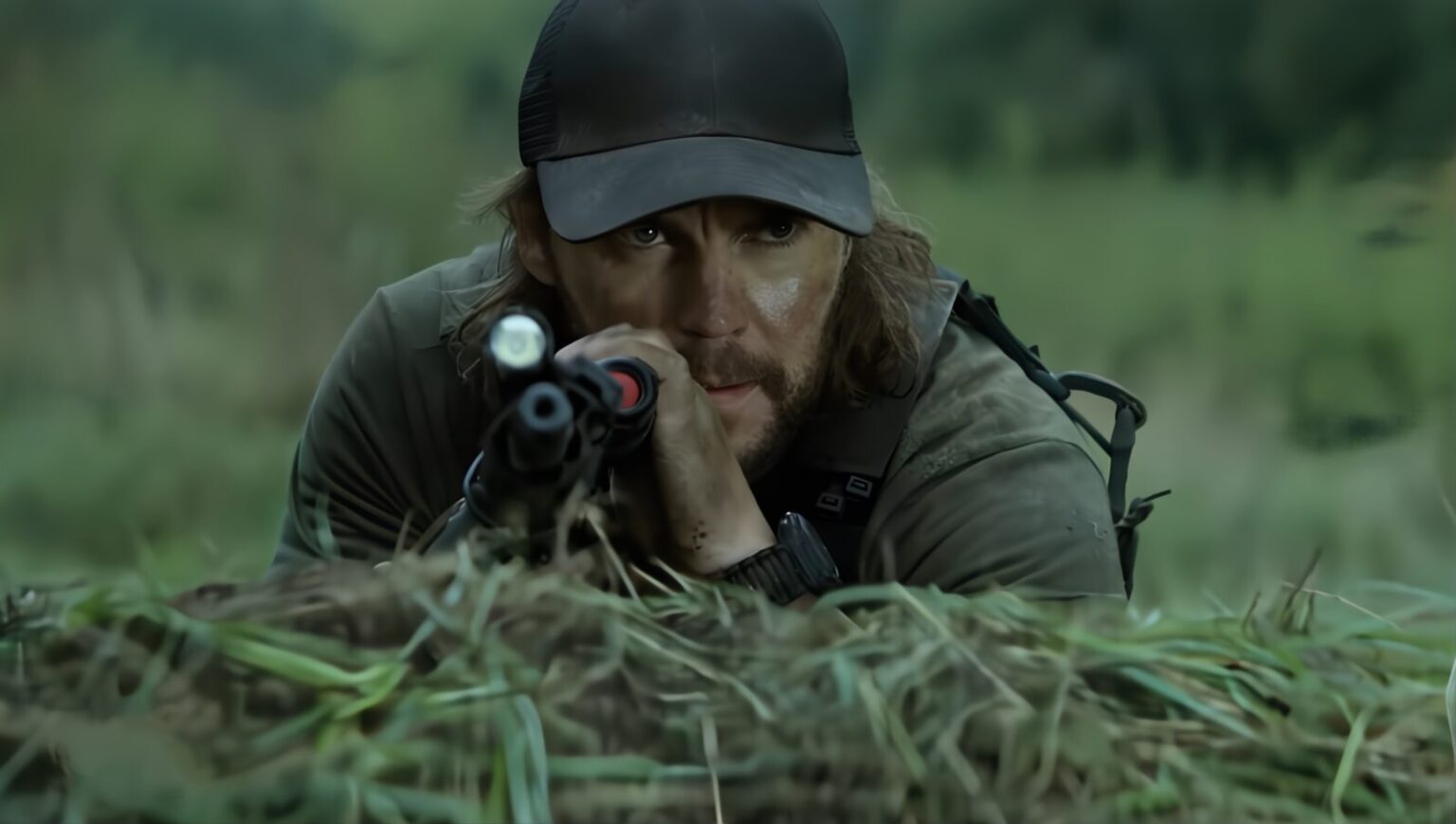TL;DR: Dark Wolf puts Taylor Kitsch where he belongs—front and center in an action show that’s smarter, sharper, and more compulsively watchable than you’d expect. Not flawless, but easily one of Prime Video’s most entertaining series in years.
The Terminal List: Dark Wolf
Taylor Kitsch Finally Gets His Spotlight
There’s a strange comfort in watching a star finally get the role they were born to play. For me, that’s what The Terminal List: Dark Wolf represents for Taylor Kitsch. For over a decade, the guy has lived in that odd Hollywood purgatory where everyone knows you’re talented, but your filmography looks like a highlight reel of studio misfires. John Carter, Battleship, and even that half-forgotten second season of True Detective—Kitsch was always magnetic, but the projects themselves stumbled under the weight of their own ambitions. He’s the kind of actor who should’ve been a household name, but instead became a cautionary tale whispered around studio backlots. And yet, here he is in 2024, front and center in a Prime Video prequel that does what all those big-budget blockbusters never quite managed: it gives him space to actually own the screen.
From The Terminal List to Dark Wolf
Dark Wolf is pitched as a prequel to 2022’s The Terminal List, Chris Pratt’s bruising, ultra-serious Navy SEAL revenge saga adapted from Jack Carr’s novel. That show had critics groaning about self-serious “dad TV” while audiences devoured it like comfort food from a diner you’ll never admit to loving. I was one of those weirdos caught in the middle: annoyed at its dour monotone but still unable to stop hitting “next episode.” Dark Wolf, though? This thing hooked me right away, because it’s not about Pratt’s James Reece this time. Instead, it zooms in on Ben Edwards—the loose-cannon SEAL turned morally ambiguous operator played by Kitsch—and lets him carry the story. And the wild thing is: he carries it effortlessly.
The Plot: Shadows in Mosul
The setup feels familiar, almost reassuring, in its adherence to genre beats. We’re back in 2015 Mosul, with Edwards and his team chasing down ISIS leadership. Things spiral when Edwards impulsively kills a CIA asset in what looks, at first, like reckless bloodlust. But here’s the trick: the writing, and more importantly, Kitsch’s performance, makes you feel the ambiguity in your bones. It wasn’t the “right” move, but it wasn’t entirely wrong either. That tension—that space where morality starts to bend under the pressure of combat—is where Dark Wolf thrives. Before long, Edwards is stripped of his official standing, shoved into the murky world of espionage alongside Raife Hastings (Tom Hopper, who looks like he was born to play the guy you do not want to see in a dark alley). From there, the show veers into spy-thriller territory, with covert ops, shady alliances, and a second episode that feels like someone smashed Call of Duty and a Bond movie together in the best possible way.
Action That Puts Movies to Shame
And listen, I’ve seen a lot of “prestige action TV” over the years. Most of it looks like it’s begging to be taken seriously while still staging fights that feel about as dangerous as a barroom scuffle in a soap opera. Dark Wolf is different. The action here is kinetic, brutal, and shot with clarity. When fists fly or bullets tear through concrete, it lands with weight. There’s a close-quarters fight involving Shiraz Tzarfati’s Tal Varon—a Mossad operative who nearly steals the entire show—that made me sit forward on my couch, muttering “oh damn” like a teenager sneaking into his first R-rated action flick. The bigger set pieces are spectacular, sure, but it’s the smaller ones, the sweaty, up-close brawls, that linger in the memory. For once, I didn’t feel like I was watching stunt doubles blur across shaky cam. I felt like I was right there in the room.
Balancing Grit and Escapism
What I love most, though, is that the show doesn’t just park itself in one tonal lane. It starts as a war drama, heavy and solemn, the kind of thing that opens with dusty boots stomping through the desert and military jargon that makes you check Wikipedia. But then, just when you think you know what ride you’ve bought a ticket for, it starts shifting gears. By episode two, Edwards is calling one elaborate spy op “straight-up James Bond sh*t,” and he’s not wrong. The tonal whiplash could’ve been disastrous, but somehow the balance works. It respects the gravity of war while still indulging in pulpy action fantasy. That’s not an easy trick to pull off, and I found myself surprised at how naturally the show swung between grit and spectacle.
Kitsch in Command
Kitsch, of course, is the reason it all holds together. He’s got that rare action-star blend of menace and vulnerability. He looks like a guy who could kill you with a paperclip, but his eyes give away a constant flicker of regret. He doesn’t play Edwards as a hero or a villain; he plays him as a man who’s done terrible things in service of what he thought was right, and now lives in that uneasy space between loyalty and self-destruction. It’s the kind of layered antihero performance that action TV doesn’t usually bother with. Hopper complements him beautifully, towering and blunt where Kitsch is wiry and haunted. Even Pratt, popping in for bookend appearances, feels sharper than he did in the original series. And then there’s the female cast—Rona-Lee Shimon and Shiraz Tzarfati—who frankly deserve their own spinoff. They’re not just thrown in as side ornaments; they steal scenes outright, with grit, wit, and a grounded presence that makes everyone else raise their game.
The Flaws Beneath the Firepower
Now, if I’m being honest, the show isn’t flawless. There’s an occasional lack of clarity about how much sympathy we’re meant to extend to Edwards, especially when viewed against where his character ends up in the main series. That ambiguity might be intentional, but it sometimes leaves the emotional stakes a little foggy. And yes, by the finale, you can feel the machinery of “setting up the larger universe” grinding a bit too loudly. There’s an almost Marvel-style eagerness to build a franchise roadmap, and while it doesn’t tank the momentum, it does take you out of the story for a beat or two.
Dad TV Done Right
But here’s the thing: I didn’t care much, because I was having too much fun. Dark Wolf doesn’t pretend to be high art. It doesn’t apologize for being “Dad TV.” Instead, it takes that label and polishes it until you can see your reflection in it. Big, muscular, old-school action with a modern edge—that’s the pitch. And it delivers, scene after scene, with an assurance that’s been missing from most big-budget action recently. In an era where every franchise seems to want to reinvent the wheel, there’s something almost radical about a show that just says, “Nah, let’s make the wheel spin as smoothly as possible.”
Reception and Legacy
Will critics embrace it? Probably not universally. The first Terminal List was ripped apart by reviewers but adored by audiences, pulling in record-breaking numbers for Prime Video. I suspect Dark Wolf will follow that same trajectory, though with a little more critical goodwill thanks to Kitsch’s magnetic presence and the tighter storytelling. But whether the Rotten Tomatoes score is 40% or 90%, I can guarantee one thing: fans of the original and action junkies in general are going to binge this thing like a six-pack of cheap beer on a hot day. It’s just that kind of show.
Final Thoughts
For Taylor Kitsch, Dark Wolf feels like vindication. For viewers like me, it feels like a reminder that action television doesn’t have to apologize for being straightforward entertainment. Sometimes all you want is grit, spectacle, and a lead actor finally stepping into the spotlight he was always meant to occupy.
The Terminal List: Dark Wolf isn’t redefining television, but it doesn’t need to. It’s a sharp, brutal, and surprisingly versatile action prequel that finally unleashes Taylor Kitsch’s full potential as a leading man. If the original series was divisive, this one feels like the course correction—a confident, crowd-pleasing dose of action TV that knows exactly what it is and delivers without compromise.







